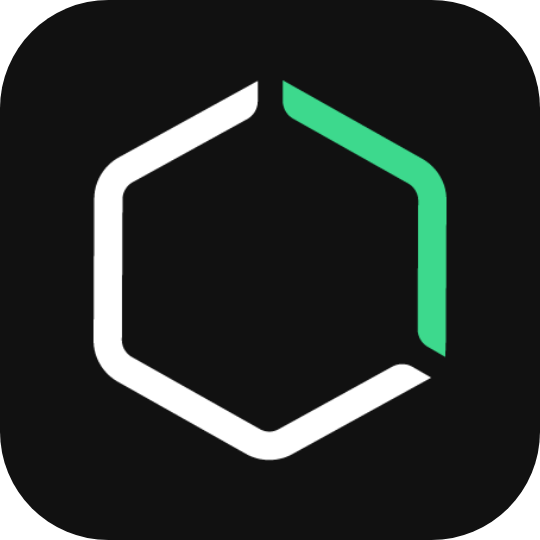Introducing Bunch’s Engineering Team advancement levels
As we approach a new phase of growth at Bunch, we thought it’d be timely to take a step back and reflect a little bit. After all, when you’ve set out to change the way the world works, it’s important to be thoughtful about it.
It’s common knowledge that when it comes to hiring engineers, it’s somewhat of a seller’s market. Skilled engineers are few and far enough between that most companies more or less never stop looking. Huge players like Google and Facebook push the boundaries on creative recruiting techniques and spend lavish amounts on services like massages, laundry, gourmet food, and other workplace perks in a bid to attract talent and keep it there.
Obviously, Bunch isn’t quite at in-house pizza oven status yet. But that doesn’t mean we can’t work hard to give engineers what they really want: impact and growth. When an engineer comes into your office for an interview, it doesn’t matter if they’re fresh out of university or they’ve been in the industry for 15 years, they want to see how they can have an impact, advance to the next level, and change the world. And when you think about it, these are the same thing.
If you grow, we grow
“Having an impact” is one of those phrases that get thrown around a lot these days, but it pays to decode it a little bit. Really it comes down to wanting to work on interesting and meaningful projects, to solve complex and challenging problems that make a difference to the customers, the team, and the world. That’s lucky for us, because those are exactly the kind of problems we’re dealing with.
Once we realized that impact and advancement were actually a cause and effect rather than two discrete criteria, we were able to develop a system to increase clarity and transparency in both our recruitment and people management processes.
Introducing Levels
So at Bunch, as you might know, we’re kind of obsessed with data and teams. In many companies, promotions are based on vague, subjective, and very often biased criteria, but basing something as important as professional growth on indistinct, subjective impressions just didn’t sit with us. That’s why we developed levels. Levels are a simple system, published openly on our Github and linked to in every job listing, so that everyone can see and understand what’s important to us, what criteria they’ll be judged on, and how to get to the next stage of their development at Bunch. Also, we love Star Wars, so don’t be surprised by the naming convention.
“Designing and implementing intuitive, scalable systems is what engineering is all about.”
Take a look at “Han Solo (Proficient)”. In our experience, an employee with 2-3 years’ worth of experience would typically enter at this level.
Han Solo (Proficient)
- Fully Autonomous on 1 framework
- Unit testing with at least framework
- OWASP top 10 & Ethical Hacking 101 theory
- REST APIs principles
- You use CLI tools to optimize your dev environment
And compare that to the next level, Luke Skywalker (Advanced):
Luke Skywalker (Advanced)
- Autonomous on 2 frameworks or more
- Unit testing with 2 different frameworks
- You know how to write integration tests
- You can estabilsh, share & automate (through linters) design/coding guidelines
- Knowledge on the language’s runtime internals
- You can scaffold new projects from scratch
- Dev-ops & CI/CD, you know how to ship and run what you build
- Ethical Hacking 101 practice (workshop)
As you can see, a hypothetical engineer at level “Han Solo” looking to advance has a clear path ahead of her. From here, she can work with her team lead and coworkers to advance to the next step. Her personal growth is the company’s growth.
Here’s a quick recap of the levels, head over to our Github repository for more details:
| Rank | Tech Skills (Main/Secondary) | Problem Solving | Impact & Initiatives | Ownership | Culture background | Customer focus |
|---|---|---|---|---|---|---|
| Youngling | R2D2 / None | Level 1+ | Improve yourself | Involved in 1 area | Know the O’Reilly model | Know our Customers |
| Padawan | Han Solo / Young Anakin | Level 3+ | Improve the team | Involved in 2 areas | Read O’Reilly’s whitepaper | Intercom rotation |
| Jedi Knight | Luke Skywalker / Han Solo | Level 4+ | Improve the Engineering team | Involved in 3 areas | Read 10+ culture whitepapers | Contribue to the knowledge base |
| Jedi Master | Master Yoda / Han Solo | Level 5 | Improve the Company | Own 1, involved in 3 other areas | Contribute to the whitepapers Database | Same as previous |
Culture of transparency
In a way, it makes sense that we should manage our engineering team the way we build our product: designing and implementing intuitive, scalable systems is what engineering is all about. By creating a transparent, easy-to-understand system of advancement based on what the company really needs, we can appeal to a wide range of candidates and enjoy better success.
At Bunch, we like to think that we understand culture quite well. But improvements can always be made. It just goes to show that growth culture is a project: something that needs to be actively cultivated and maintained if it’s to remain strong and vibrant. Have an idea on how to improve our current approach? Write me directly at [email protected] and let’s improve it together.




